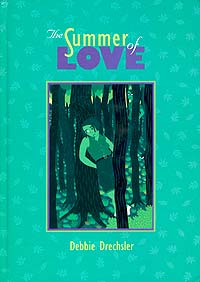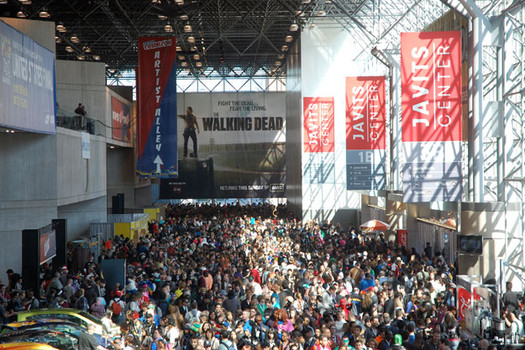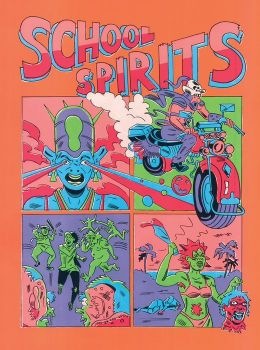With friends like these, who needs enemies? Last week, outspoken proponent of diversity Heidi MacDonald used her platform to belittle and mock some of the biggest meanest bullies in comics: people who want to talk about racism.
How much do you know about the Mahou Shounen Breakfast Club (MSBC) controversy? If it’s nothing, congratulations on living your best life; you can, if you want, catch up on it here. (We’ll wait.) If you are familiar with MSBC, please set aside for the moment your take. One of the few undisputed facts of the whole debacle is that its creators decided not to make their comic anymore. The impetus of MacDonald’s post, as she describes it, was to use her capacity “as a reporter to investigate if their decision was justified.” Well, stop the press, Vicki Vale. Their decision was entirely within their rights as creators, and is therefore justified no matter what you or me or anyone else thinks about it.
I mean, don’t get me wrong. I have a lot of opinions on both the comic (which doesn’t strike me as cultural appropriation) and the creators’ decision to quit (which I find ridiculous). But those are not journalism. MacDonald’s post is what is known as a hot take, and it is made up of her total misunderstanding of both cultural appropriation as a concept and one person’s blog post that went up after the comic was cancelled. Along the way, she asserts that manga appropriated Walt Disney(?) and Robert Louis Stevenson(??), and accuses Jem Yoshioka, the aforementioned blogger, who is of Japanese descent, of being dismissive of Japanese culture. Whatever you might think about all that, it sure as shit isn’t reporting. The fact that the author sees it as such comports neatly with her central claim, which is that champion of equality Heidi MacDonald knows racism, and this ain’t it.
* * *
Anyone can have an opinion. But it’s inappropriate to position yourself as a cheerleader for people from one or more demographics to which you don’t belong, disparage their opinions, displace them with your own, and then act as if you’re doing them a favor. If you do so in your capacity as editor, it is not just distasteful; it is an abuse of power. It is being a fucking bully.
While there are many examples of this behavior in comics, let’s zoom in on a case study from the world of High Literature. If you can even bear to get pulled into another insider-y saga, I’d like to share an illustrious tale about Times Literary Supplement editor Toby Lichtig. About two weeks ago, the Los Angeles Review of Books ran his remarkable essay on gender inequity in the literary magazine milieu. Lichtig wrote with great news for me and my fellow women writers: he has thought deeply about our struggle, and he wants us to know it’s going great.
Hey girl. Just want u to know ur doing great. xo, Toby
Lichtig’s essay, like MacDonald’s post, is inside baseball at its worst. It is, variously, a takedown of a takedown of the London Review of Books; a piece that somehow both denies and accounts for the lack of women in literary criticism; and a wrongheaded critique of one frustrated woman writer, Katherine Angel, and her ilk for writing “casually” about gender (which I guess is what passes for a sick burn in British English). Despite its casualness, Lichtig frames Angel’s writing as a violent attack:
I’d like to make a small case for the magazine at which I work—the Times Literary Supplement—one of the publications so casually attacked by Angel as bastions of androcentricity. I say “casually” because Angel’s main focus of attack was the LRB, and she only offered a sideswipe at the TLS. And I also say “casually” because some of her writing on the subject was indeed casual. (emphasis mine)
Lichtig’s essay also describes a “sort of ‘blah’ that habitually creeps into writing about” gender inequity. By “blah” he means unfair generalizations, which he perceives Angel’s essay and just in general (lol). In the spirit of specificity, Lichtig waxes on about how each and every literary magazine is a super special snowflake (…sound familiar yet?). He takes a close look at numbers that aren’t really so different from one another. He even explains how statistics could never truly account for the True Celebration of Womanhood that was TLS’s recent Susan Sontag issue. Or something?
TL;DR: NOT ALL MEN. But reaching past the essay’s fundamental pettiness, it is a fascinating cultural document. In Lichtig, we have an associate editor of a magazine who elected himself to speak not just on behalf of that publication, but for the experience of all women in the literary world. Standing behind him, we have his employer, the Times Literary Supplement, which (presumably) thought that having him speak in this way sounded like a good idea. And finally there’s the LARB, the publication that deemed it fit to print. The final product is some 4,000 words of egregious mansplaining implicitly endorsed by one of the most reputable literary publications in the world.
It is important to realize that the struggle of women writers is not Lichtig’s real subject. His subject is his misguided opinion on the struggle of women writers, and in disguising that as objective truth he is not altogether artless. His opening paragraphs are a master class in how to put a woman’s exact words into scare quotes. And there is real rhetorical sophistication in his invocation of feminist icon Mary Beard, his TLS colleague, whom he quotes twice. In the world of Lichtig’s essay, it is only women—including Katherine Angel, LRB editor Mary-Kay Wilmers, novelist Kathryn Heyman (whose name Lichtig misspells twice), and Beard herself—who commit acts of sexism against other women. Kind of like saying that someone of Japanese descent is being dismissive of Japanese culture, if you can see where I’m going with this.
What’s really galling about the essay is not Lichtig’s tactics (gross as they are) or his ideas (which are really nothing new), but the patronizing way in which he positions himself as a cheerleader for women in the literary world even as he discounts their experience and opinions:
Portraying the situation as intractable and representing the literary world as a male-dominated monolith against which women can only bang their heads or give up can be counterproductive, leading not to resistance but resignation. Rather than argue that literary editors are “perpetuating” gender disparity, better to look at the historical facts: we have made great progress in redressing “the shocking paucity of women of authority and expertise” in most areas of our culture over the past 200 years, and we should rededicate ourselves to continuing that progress, rather than blaming literary publications for slowing it down.
These words speak to me, not with the message they’re meant to convey, but as an artifact of the time in which I write. Lichtig’s paternalistic pep talk, his complete mischaracterization of another thoughtful essay (on which his own is supposedly based), his half-baked historicism, and his self-congratulation are all too familiar. I see it all the time in comics. (Shoutout to The Comics Journal!) Today, I happen to be talking about The Beat.
* * *
Call them the unwitting supremacists. “Awareness” will always and forever pour forth from the mouths of well-meaning people like Toby Lichtig and Heidi MacDonald. But the inequities they seek to redress by definition demand their thoughts should count less. They require fewer proclamations of “awareness” and more ongoing, concrete editorial action and opportunities to cede the floor to other voices.
Lichtig, for one, could GAF about voices. Wearing the mantle of editorial authority, he only seeks to ease our worried minds. “We [editors] notice the gender divide,” he writes. “We think and talk about it regularly. And it is, I think, this awareness that is key to things changing.”
Reader, I humbly submit to you, here towards the end of an essay that has long since surpassed take-level meta, that awareness is not the key to change. Awareness is an abstraction, or worse, an illusion. Sometimes, as in MacDonald’s piece, awareness is wielded as both a talisman and a weapon—and then it’s closer to a lie. I guess it’d be one thing if it only powered bloated blog posts and ill-considered essays, but the sad historical fact is that it permeates everything from editorial policies to dismissive emails and tweets—all manner of communiqués, public and private, from people with cultural capital who earnestly believe themselves to be proponents of change. It is, to use Lichtig’s word, casual sexism and racism, and it is often culturally and institutionally supported, if not explicitly endorsed.
Back to MacDonald’s post. “If you have been reading my writings for any amount of time, you know that I’m a fan of multicultural diversity, and of multiple viewpoints and creators of every sex, religion, creed, race and sexual orientation getting a chance to tell their stories,” she writes. “I’m also a huge fan of cultural context for stories that examine how the preconceptions of a work of art are reflected in the execution. But I never want to see these criticisms used to PROACTIVELY SILENCE ART.”
Those capital letters are the author’s, and they are used throughout her screed, along with boldface and incredulous subheadings, to convey her utter indignation that people started a conversation about cultural appropriation in some comic she has officially deemed OK. Like Lichtig, MacDonald frequently describes critique as violent attack. She casts critics of MSBC as enemies of good art and bullies who “silenced” its creators. And even as she ascribes to them this incredible power, she mocks them as overly sensitive, irrational people whose claims are no more than “hurt feelings.” This rhetorical hypocrisy will sound familiar to anyone who has a passing familiarity with indie comics criticism. Political correctness is killing comics, or so they say. What it amounts to is a bunch of hubbub that sounds like it’s supporting diversity, but works diligently to protect the status quo. And what is getting lost—and, worse, derided—are the actual voices that were marginalized in the first place.
What is silencing? A lot of people in comics seem confused, so let me be plain: silencing is using your platform to punch down. It involves, in MacDonald’s post as in posts at other prominent comics sites, characterizing conversations about racism (or any given -ism or phobia) as censorship and/or irrational bullying. When someone called bullshit on MacDonald’s post, she said, “We need to do better. If we want to fight the cultural ascendance of ONE viewpoint—the white male cis viewpoint—we can’t let weak arguments define our position.” Then MacDonald said, to another person, “I am an equal opportunity jerk.”
Her language is reminiscent of every comics asshole ever who has refused to examine their own bias. The difference is that MacDonald thinks she’s doing it in the name of diversity—which is, I think, worse. It’s no accident that equal-opportunity offenders always ALWAYS offend certain people. When those people try to then explain where they are coming from, that is not attacking or policing comics. It is straight-up self-defense.
Anyone who has tried to follow the MSBC controversy as it has unfolded knows how difficult it is to see past mainstream coverage on The Beat and Bleeding Cool. To wade through the primary sources is a ridiculous exercise that’s emblematic of the dearth of prominent platforms available to divergent perspectives. Gatekeepers like MacDonald are not yet convinced of those critics’ humanity, instead casting them as anon trolls, proponents of callout culture, or bullies who aren’t even personally invested in comics.
MacDonald got some blowback for her piece, which she acknowledged in an addendum to her post that reaffirms her own imagined cultural awareness. (Har har.) Meanwhile, Jem Yoshioka, the blogger MacDonald mocked and diminished—and whose post, whether or not you agree with it, was respectful, thoughtful, and kind—has received at least one death threat from GamerGate. Such are the stakes of trying to carve out a place for yourself to exist in this crazy world: you’re threatened with extinction, or else laughed at even as you’re imbued with the magical power to kill comics with your thoughts. This milieu is unacceptable and depressing, but not hopeless. One thing I know: downstream voices on Twitter, Tumblr and elsewhere are punching up and speaking out. It won’t always have to be for survival. Someday it will feel like victory.




